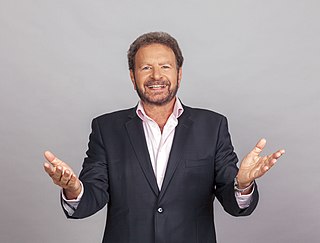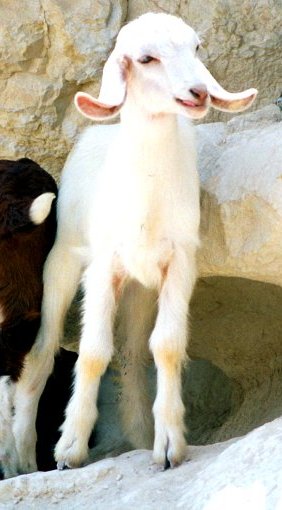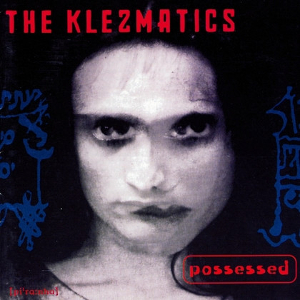"Go Down Moses" is an African American spiritual that describes the Hebrew exodus, specifically drawing from the Book of Exodus 5:1: "And the LORD spoke unto Moses, Go unto Pharaoh, and say unto him, Thus saith the LORD, Let my people go, that they may serve me", where God commands Moses to demand the release of the Israelites from bondage in Egypt. As is common in spirituals, the song discusses freedom, referring both to the freedom of the Israelites, and that of runaway enslaved people. As a result of these messages, this song was outlawed by many enslavers.

Klezmer is an instrumental musical tradition of the Ashkenazi Jews of Central and Eastern Europe. The essential elements of the tradition include dance tunes, ritual melodies, and virtuosic improvisations played for listening; these would have been played at weddings and other social functions. The musical genre incorporated elements of many other musical genres including Ottoman music, Baroque music, German and Slavic folk dances, and religious Jewish music. As the music arrived in the United States, it lost some of its traditional ritual elements and adopted elements of American big band and popular music. Among the European-born klezmers who popularized the genre in the United States in the 1910s and 1920s were Dave Tarras and Naftule Brandwein; they were followed by American-born musicians such as Max Epstein, Sid Beckerman and Ray Musiker.
Benny Bell was an American singer-songwriter who reached popularity in the 1940s, with a comeback in the 1970s. He is remembered for his risqué but cheerfully optimistic songs.

The Klezmatics are an American klezmer music group based in New York City, who have achieved fame singing in several languages, most notably mixing older Yiddish tunes with other types of more contemporary music of differing origins. They have also recorded pieces in Aramaic and Bavarian.

David "Dudu" Fisher is an Israeli cantor and performer, best known for his Broadway performance as Jean Valjean in the musical Les Misérables.
Golem is a rock-klezmer band from New York City. They mix traditional Eastern European Jewish music with original material sung in Yiddish, English, Russian, as well as Ukrainian, French, Serbo-Croatian, and Romany. The group describes itself as "Where Eastern Europe Meets the Lower East Side" and uses avant-garde spectacle to both challenge and embrace the stylistic norms of klezmer music.
Joshua Nelson is an American gospel singer and Hebrew teacher.

Chad GadyaorHad Gadya is a playful cumulative song in Aramaic and Hebrew. It is sung at the end of the Passover Seder, the Jewish ritual feast that marks the beginning of the Jewish holiday of Passover. The melody may have its roots in Medieval German folk music. It first appeared in a Haggadah printed in Prague in 1590, which makes it the most recent inclusion in the traditional Passover seder liturgy.
2 Live Jews was a comedy hip hop duo composed of MC Moisha and Easy Irving. Its name is a parody of 2 Live Crew. The duo were known for songs that mixed and spoofed hip hop culture and Jewish American stereotypes; the members were purportedly two elderly Jewish men who had recently discovered their rhyming ability. In reality, Lambert and Stone were young men who were raised Jewish.

Maurice Schwartz, born Avram Moishe Schwartz, born in the Volhynia province of the Russian Empire, was a stage and film actor active in the United States. He founded the Yiddish Art Theatre and its associated school in 1918 in New York City and was its theatrical producer and director. He also worked in Hollywood, mostly as an actor in silent films but also as a film director, producer, and screenwriter.

Stefan Hantel, better known by his stage name Shantel, is a German DJ and producer based in Frankfurt. He is known for his work with Romani brass orchestras, DJing and remixing traditional Balkan music with electronic beats.
The mixture of meat and dairy is forbidden according to Jewish law. This dietary law, basic to kashrut, is based on two verses in the Book of Exodus, which forbid "boiling a (goat) kid in its mother's milk" and a third repetition of this prohibition in Deuteronomy.
Moses, Moishe, Moshe, Musa (Arabic:موسی), or Movses is a male given name, after the biblical figure Moses.

Possessed is an album by the American klezmer group the Klezmatics, released in 1997.
Matt Darriau, is a Balkan, klezmer, Celtic and jazz musician. His most notable work is with Balkan rhythm quartet Paradox Trio, The Klezmatics, and Orange Then Blue.
Jewish hip hop is a genre of hip hop music with thematic, stylistic, or cultural ties to Judaism and its musical traditions.
Basya Schechter is an American singer-songwriter, multi-instrumentalist, composer, producer, cantor, and music teacher. She is the lead singer and founder of the world/folk rock band Pharaoh's Daughter and has released two solo albums. She has also collaborated with the groups Darshan and The Epichorus.

Fifa is an album by the Beninese musician Angélique Kidjo, released in 1996. It was the first album on which Kidjo sang in English in addition to Fon and French. Fifa was considered to be an attempt at a crossover album. The first single was "Wombo Lombo".
Eleanor Reissa is an American actress, singer, theatre director, playwright, librettist, choreographer, translator, and author based in New York City. She works and performs in English and Yiddish speaking stages, and also interprets and performs Yiddish theatre and songs.








